Unexpected Jolts of Children’s Literature in Rather Adult Places
 Reading through the most recent issue of The New Yorker, you may encounter the short story “Little Man” by Michael Cunningham. It’s a rather cunning retelling of Rumplestiltskin that veers oddly close to the original tale. Granted Cunningham has no idea how spinning wheels work (see: Paul. O. Zelinsky who actually put in the research with his version) but otherwise I loved what he did with it.
Reading through the most recent issue of The New Yorker, you may encounter the short story “Little Man” by Michael Cunningham. It’s a rather cunning retelling of Rumplestiltskin that veers oddly close to the original tale. Granted Cunningham has no idea how spinning wheels work (see: Paul. O. Zelinsky who actually put in the research with his version) but otherwise I loved what he did with it.
Reading the piece got me to thinking about my current job. These days I’m not really purchasing all that many children’s books. I still keep up, but as the Collection Development Manager of the Evanston Public Library system I’m now deeply submerged in the world of adult literature and nonfiction. One thing I’ve found with my new job purchasing such titles is that my eyes are now being opened up to a wide and wonderful world I’d never really experienced in full before: Adult books on kidlit topics. Sure I’d seen a lot of the academic titles and books by folks like Leonard Marcus, Phil Nel, etc. but consider the following books. Each one contains something interesting to our business.
ADVERTISEMENT
ADVERTISEMENT
Here are some of the titles I’ve encountered in the course of a single week:
The description from the publisher reads:
“The First World War laid waste to a continent and permanently altered the political and religious landscape of the West. For a generation of men and women, it brought the end of innocence and the end of faith. Yet for J. R. R. Tolkien and C. S. Lewis, the Great War deepened their spiritual quest. Both men served as soldiers on the Western Front, survived the trenches, and used the experience of that conflict to ignite their Christian imagination. Had there been no Great War, there would have been no Hobbit, no Lord of the Rings, no Narnia, and perhaps no conversion to Christianity by C. S. Lewis.
Unlike a generation of young writers who lost faith in the God of the Bible, Tolkien and Lewis produced epic stories infused with the themes of guilt and grace, sorrow and consolation. Giving an unabashedly Christian vision of hope in a world tortured by doubt and disillusionment, the two writers created works that changed the course of literature and shaped the faith of millions. This is the first book to explore their work in light of the spiritual crisis sparked by the conflict.”
And while we’re on the topic of Tolkien:
The publisher writes of it:
“From superstar linguist David J. Peterson comes a creative guide to language construction for sci-fi and fantasy fans, writers, game creators, and language lovers. Peterson begins with a brief history of constructed languages, from Tolkien’s creations to Klingon to today’s thriving global conlang community. Then, using examples from his own languages alongside helpful comparisons to real ones, Peterson offers a captivating and lucid overview of language creation, providing a basic foundation of essential linguistic tools for inventing and evolving one’s own lexicon. Along the way, behind-the-scenes stories lift the curtain on how he built the languages for television series and movies such as SyFy’s Dominion and Thor: The Dark World, and an included phrase book will start fans speaking Peterson’s constructed languages. An inside look at a fascinating culture and a perfect entry point into an art form as old as civilization,The Art of Language Invention is a wild linguistic adventure that will have readers ready to rub shoulders with horse lords and dark elves.”
For a second I misread that last sentence to read “house elves”. If only.
This one I would never have suspected, had I not read the Kirkus review. As they say, “Perhaps the best of these stand-alone selections is ‘The Love that Dare Not Squeak Its Name,’ originally from Salon, in which Rakoff’s interpretation of E.B. White’s Stuart Little as a seminal gay icon will make it difficult for readers to see the mouse-child in any other light.” You can read the piece in question here if you’re curious.
All you need to do is to look at the cover. Nuff said.
I find this particular description a bit of the baffling side (what precisely does “violently anti-Wilder” mean?). Still, it falls under the same umbrella. Fingers crossed that there’s a Bloody Benders reference in the book somewhere. From the publisher:
“Two sisters take a road trip that will change their lives. Chloe Ellefson, a collections curator at Old World Wisconsin, is a big fan of Laura Ingalls Wilder, so she’s thrilled when her elderly neighbor Miss Lila brings her a quilt that may have been owned or even made by Wilder. Miss Lila wants Chloe to decide which of the many museums devoted to Wilder should get the quilt, but then she’s killed in a break-in before Chloe can gather much information from her. Although Chloe’s not very close to her sister, Kari, who’s married to a dairy farmer and has two children, they both have happy childhood memories of the Little House books and the times they pretended to be Laura and her sister Mary. So she asks Kari to go with her to visit all the museum candidates. At their first stop, they’re unable to prevent a young man from dying of anaphylaxis. Then Chloe finds herself interfering in a fight between a Wilder-obsessed wife and her controlling husband. The woman leaves her husband behind and joins the group on Alta Allerbee’s Laura Land Tours bus. Chloe’s dream trip keeps getting worse as she realizes Kari’s hiding a secret and at least two of the people tagging along on the tour are violently anti-Wilder. Her struggles to uncover several secrets reveal some surprising things about her heroine. This sixth adventure for Chloe (Tradition of Deceit, 2014, etc.) is a real treat for Little House fans, a fine mystery supplemented by fascinating information on the life and times of Laura Ingalls Wilder.”
From the publisher:
“Some of your favorite New York Times bestselling authors present five all-new stories told through the looking glass including a new Eve Dallas novella!You’re late for a very important date…Enter a wonderland of mesmerizing tales. It’s a place that’s neither here nor there, where things are never quite as they seem. Inspired by Lewis Carroll’s whimsical masterpiece, ranging from the impossible to the mad to the curiouser, these stories will have you absolutely off your head.Don’t be afraid to follow them DOWN THE RABBIT HOLE“
On the flip side there are also authors that I’ve only ever encountered through their children’s books without any knowledge of their adult literature. Hannah McKinnon, Mal Peet (which I pretty much knew, but still…), etc. These are folks that are giving me a new appreciation for the variety they are capable of producing. In the meantime, I’m enjoying these other books and their references. Fascinating how childhood memories affect our literature on every level.
Filed under: Uncategorized
About Betsy Bird
Betsy Bird is currently the Collection Development Manager of the Evanston Public Library system and a former Materials Specialist for New York Public Library. She has served on Newbery, written for Horn Book, and has done other lovely little things that she'd love to tell you about but that she's sure you'd find more interesting to hear of in person. Her opinions are her own and do not reflect those of EPL, SLJ, or any of the other acronyms you might be able to name. Follow her on Twitter: @fuseeight.
ADVERTISEMENT
ADVERTISEMENT
SLJ Blog Network
2024 Books from Coretta Scott King Winners
Monkey King and the World of Myths: The Monster and the Maze | Review
Parsing Religion in Public Schools
ADVERTISEMENT









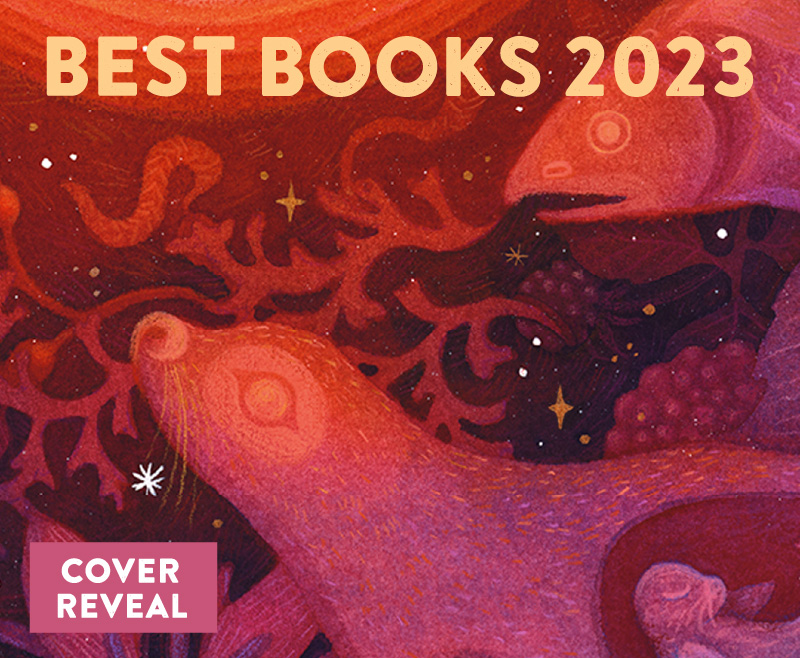
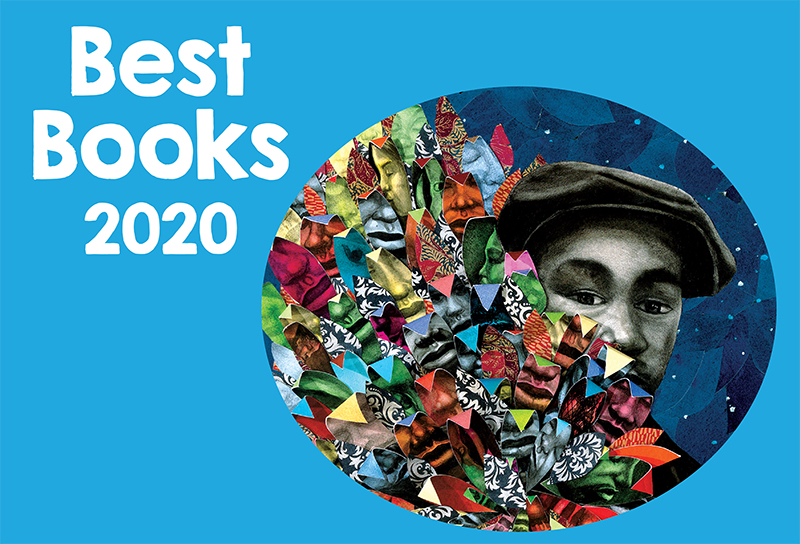
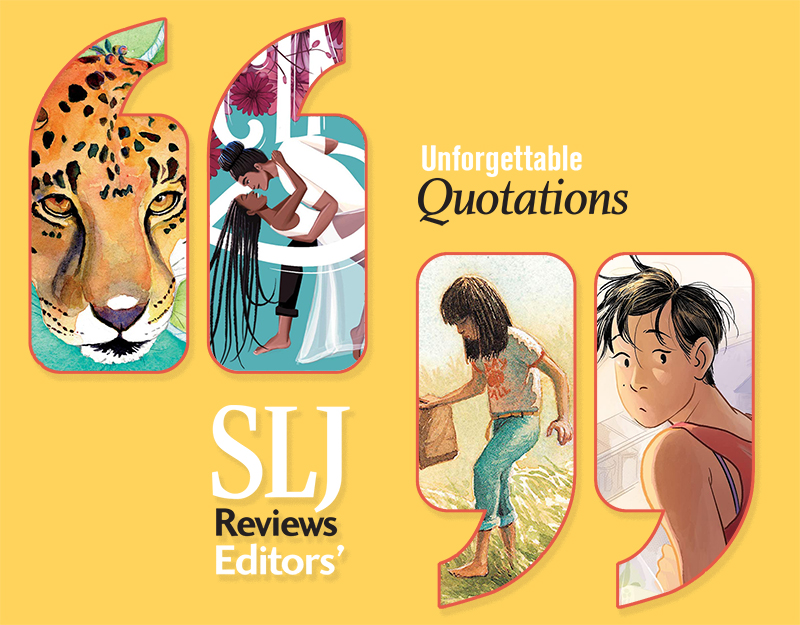
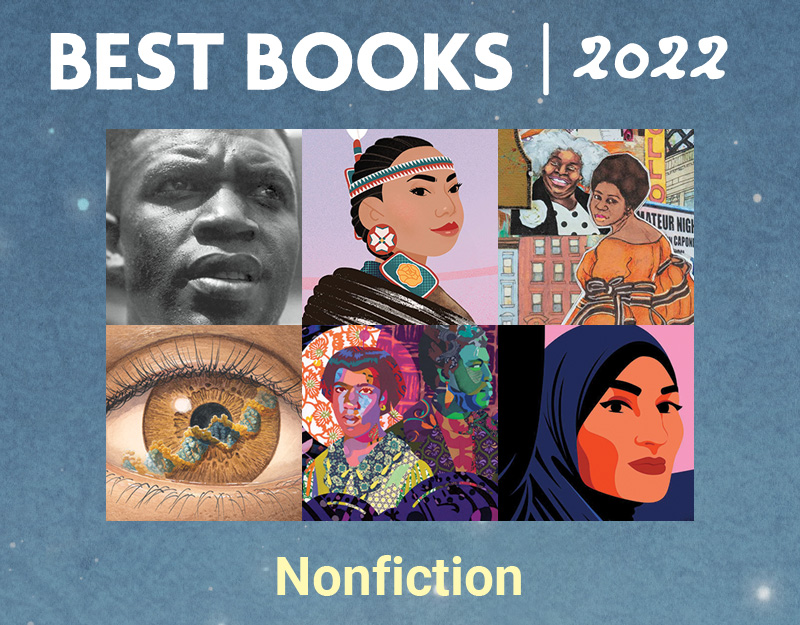
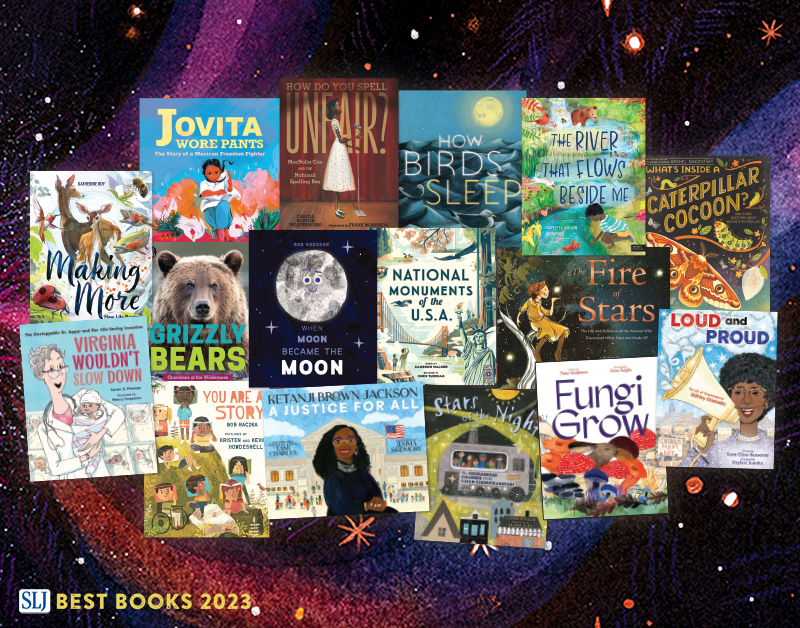
Cunningham’s delightful “Little Man” can be read online: http://www.newyorker.com/magazine/2015/08/10/little-man